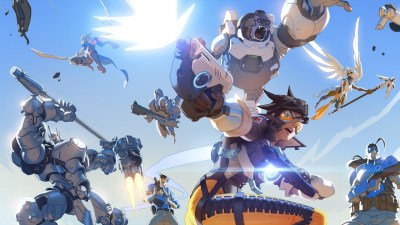Put aside any remaster fatigue you may be feeling: Legend of Kay Anniversary, a colorful action-adventure title, will be as new to most on its 10th anniversary HD re-release as it was when it first made its niche debut on the PlayStation 2.
Legend of Kay was originally developed by Neon Studios. Nordic Games has since acquired the IP rights, and so here we are - ten years later, a HD remaster of the original gets released. Now, Port-house Kaiko has been tasked bringing the game to modern hardware in this gleaming high-definition Anniversary edition, but like the game itself, the remastering process is functional but unexceptional.
Understand that Legend of Kay isn’t fundamentally flawed at the conceptual level. Take the setting, which provides an ongoing narrative detailing the plight of cocky martial arts apprentice Kay. The anthropomorphic animal denizens of Kay’s world inhabit a setting that draws upon the romance of classic Chinese martial arts culture: Kay is a practitioner of the ethereal “Way”, a Force-like combination of sword and magic that he’ll need to master in order to overthrow a colonial regime.
Nor is the game structurally flawed: it’s an action adventure game centered around collecting plot-progressing mcguffins much in the same vein as Zelda, albeit with more linear stage-by-stage progression peppered with forks in the road allowing you to tackle dungeon sections (complete with heart pieces and generic dungeon keys) in the order of your choosing. Unlike a Zelda game however, Kay places more weight on the action half of the action-adventure formula, keeping “puzzles” to little more than undemanding, and unremarkable, box shuffling.
No, Kay is troubled on two fronts: firstly it doesn’t do anything particularly well; and secondly (and more damning for an action-adventure game) it never becomes more than the sum of its parts.
The combat has you acrobatically snapping between opponents at a button press and rolling behind them to set up throws. This works well enough, but bowling your opponents over with a roll-attack and following up with a ground pound (repeatedly) is far more effective, so there’s little incentive to play how the developer intended. Combat is Kay’s main constituent, the sharpest it has to offer, and it’s merely serviceable.
Exploration suffers from a myriad of minor issues that crop in frustrating clusters. The camera is subject to a kind of z-axis bondage in violation of common decency; you can zoom in from the default camera distance, and back out again to the default distance. That’s it. You’ll often have to backtrack across a room to get a much-needed distant wide-angle view to work out where you need to go. It’s as annoying as it sounds, and a sign of the game’s age; it could so easily have been fixed for the remaster.
The framing hand of a good camera is invisible, barely registering as noteworthy unless something is amiss. Likewise, running and jumping, which seem effortless when executed correctly, appear labored and finicky when the fine details are glossed over in design. Kay can double jump, but the input window for the second jump is alarmingly narrow, with button presses sometimes translating into a new single jump upon landing, taking you by surprise as you hurtle past an overshot platform and plummet to your death.
These aren’t significant issues in isolation, but they’re joined by host of other design oversights that, when concentrated, drag the experience down. Camera placement upon entering an area sharply changes as you’re given control, leading to accidentally entering and exiting an area several times over; the nonsensical implementation of a lives system annoys; and often you’ll use a generic dungeon key to open a room that, bafflingly, only yields another generic dungeon key. Why bother having the room in the first place? The rap sheet of minor offenses runs on and on.
Even without the host of minor quibbles, Kay still suffers for being a hero’s journey story that has nothing little exceptional going for it, including the story itself which, according to the NPC’s see’s Kay grow from humble beginnings to a warrior of legend. You’ll struggle to empathize as Kay doesn’t mature as a character over the course of the game, nor does he amass much in the way of mastery over skills or gadgets during the dozen hours it takes to complete. The game’s main attempt to challenge the player is by flooding stages with waves of enemies, but even that fails thanks to poor AI leading them to accidentally kill each other with indiscriminate area-of-effect attacks.
Legend of Kay is wholly unexceptional with one exception (try not to think about that statement too much): the soundtrack. Composer Jake Kaufman, who would later go on to be renowned for his work on Shovel Knight, delivers some blood-pumping compositions that alternate between instilling a sense of heroic valor and kung-fu mysticism. To the remaster’s credit his work seems to have been untouched in the HD conversion, and it’s as good as it ever was. The less said about the voiceover work the better, though - it’s simply dreadful.
This remastered version of Kay sports pin-sharp text and a clear image thanks to the boost in resolution over its PlayStation 2 counterpart, but that’s not to say it’s polished. On the reviewed PC version there’s a notable absence of any graphics settings, and the experience is blighted by perceptible stutter when running above 60 Hz and several instances where NPCs in cutscenes stop behind Kay rather than in front of him, leaving Kay to chat away to thin air.
Neither the combat nor exploration are particularly strong. The journey is hard to invest in when you don’t feel that Kay is maturing through his own character arc, and the gameplay doesn’t really evolve as you progress.
Legend of Kay Anniversary would make for an inoffensively forgettable adventure if not for the fact that many aspects of the game simply aren’t as refined as they should be. It seemingly exists solely because it can, and you can hear the sound of the bottom of the barrel being scraped. Diehard fans (assuming they exist at all) may appreciate being able to play an oldie in high definition. But everyone else should just make do with the original soundtrack.



